
07
Appendix 1. About the Report
Approach to Reporting
GRI 2-3
This 2024 Annual Report of KEGOC JSC provides a comprehensive overview of the Company’s activities across all key areas, including sustainable development efforts and audited financial statements for 2024. Information on sustainability activities is disclosed in the format and scope in which KEGOC JSC has traditionally reported since 2009. The Company continues its practice of publishing and making sustainability-related information publicly available in the second quarter on an annual basis.
GRI 2-3, 2-14
In accordance with the Charter of KEGOC JSC, Annual Reports and Sustainability Reports prepared by the Management Board and preliminarily reviewed by the Committee for Strategy, Corporate and Sustainable Development and the Audit Committee, are approved by the Board of Directors of KEGOC JSC. The previous Sustainability Report of KEGOC JSC for 2023, which was included in the 2023 Annual Report, was approved by the Board of Directors of KEGOC JSC and published in May 2024. All of the Company’s reports are available on the official website of KEGOC JSC.
GRI 2-5
The Company engaged an independent third party, selected through a competitive process, to verify the indicators related to material topics. The list of topics and indicators is provided in the “Materiality Analysis” section of this appendix. The independent auditor’s report is presented inThe Company engaged an independent third party, selected through a competitive process, to verify the indicators related to material topics. The list of topics and indicators is provided in the “Materiality Analysis” section of this appendix. The independent auditor’s report is presented in Appendix 7.
Principles of report preparation
In preparing the part of the Annual Report related to reporting on sustainable development activities, the Company applies the following principles of the GRI Standards:
| Accuracy | The information presented in this Report has been compiled based on documented data and allows stakeholders to assess the Company's performance. Audited financial statements prepared in accordance with IFRS were used to prepare the sections of this Report relating to the economy. |
| Balance | This Report reflects positive and negative themes of KEGOC JSC's performance. |
| Clarity | KEGOC JSC endeavors to make this Report understandable and accessible to a wide range of stakeholders. To understand specific terms and abbreviations, a glossary is provided at the end of the report. |
| Comparability | This Report has been prepared in accordance with the GRI Standards, which allows stakeholders to compare the performance of KEGOC JSC with that of other organizations. The indicators disclosed in this Report are presented in dynamics for the last five years. |
| Completeness | This Report contains information on the activities of all MES branches, NDC SO branch, Executive Directorate, subsidiary organisation Energoinform JSC on all significant economic, environmental and social impacts, taking into account the specifics of the industry. In some cases, to avoid duplication of information, references to KEGOC JSC's website or publicly available documents are provided. |
| Context of sustainable development | The data in this Report is presented in the context of sustainable development as defined by the Corporate Governance Code of KEGOC JSC, including three components: economic, environmental and social. KEGOC JSC's Development Strategy defines goals, objectives, key initiatives and strategic KPIs in the field of sustainable development, and information on their achievement for 2023 is included in this Report. |
| Timeliness | The preparation of this Report is of a planned nature and is published in the second quarter of the year following the reporting year. |
| Verifiability | All information in the Report is based on data that can be verified, including official statistical reports, reports to regulatory authorities, information posted on the Company's website and KASE, SAP ERP digital platform, audited financial statements and others. |
Reporting boundaries
GRI 2-2
KEGOC JSC has prepared this Report on a corporate-wide level sustainability-related data presented herein includes data from KEGOC JSC’s subsidiary, Energoinform JSC.
The sustainability information in this Report was prepared in accordance with the GRI Universal Standards 2021 (In accordance), the SASB sector standard for Electric Utilities & Power Generators, and the AA1000SES Stakeholder Engagement Standard. It describes the Company’s relevant activities for the period from January 1 to December 31, 2024.
Any information related to future plans provided in this Annual Report is forward-looking and reflects KEGOC JSC’s current views on future events. It is subject to certain risks, uncertainties, and assumptions related to KEGOC JSC’s business, financial condition, operational results, growth strategy, and liquidity.
Contribution to the UN Sustainable Development Goals
This Report includes information affirming KEGOC JSC’s commitment to the principles of the UN Global Compact and outlines efforts related to the SDGs, adopted by all UN member states in 2015 as part of the 2030 Agenda for Sustainable Development.
We believe that the primary contribution of any business to the achievement of the SDGs lies in job creation, tax payments, and socio-economic development, as well as environmental stewardship. In addition, real and long-term positive change can only be achieved by managing our environmental impacts (broadly defined), engaging purposefully, cooperating with key actors and stakeholders, and expanding our efforts.
Each year, we will report on the SDGs most closely linked to our activities. Moreover, we analyze the areas where we have the greatest potential to make a difference. We examine where our operations may have negative impacts and identify where we possess unique opportunities to drive positive change in collaboration with stakeholders. This assessment considers factors such as the relevance of each goal and its targets to our value chain, alignment with our commitment to responsible and sustainable development, our ability to leverage our skills, competencies, and resources to drive change, and the importance of the issues to our stakeholders.
Key highlighted SDGs worked on in 2024
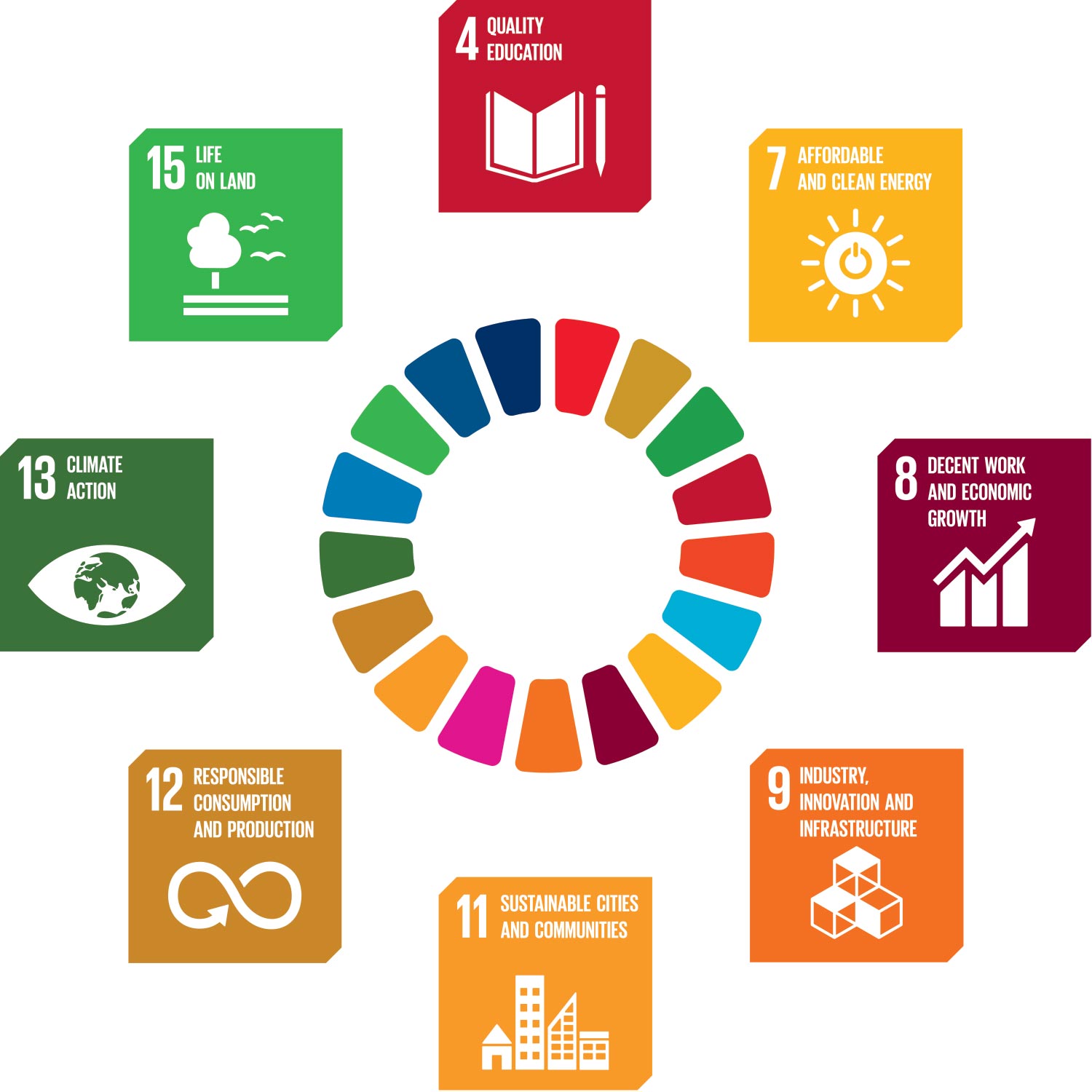
Contribution to the Achievement of the UN Sustainable Development Goals in 2024
| UN SDG | Key Targets | Contribution to the Achievement of the UN SDG in 2024 |
|---|---|---|
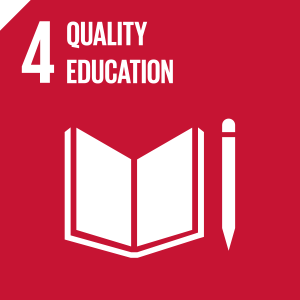
Ensure inclusive and equitable quality education and promote lifelong learning opportunities for all |
4.4. By 2030, substantially increase the number of youth and adults who have relevant skills, including technical and vocational skills, for employment, decent jobs and entrepreneurship. |
|
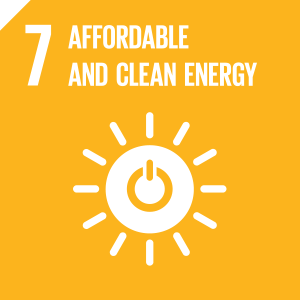
Ensure access to affordable, reliable, sustainable and modern energy for all |
7.1 By 2030, ensure universal access to affordable, reliable and modern energy services.
7.2 By 2030, increase substantially the share of renewable energy in the global energy mix. |
|
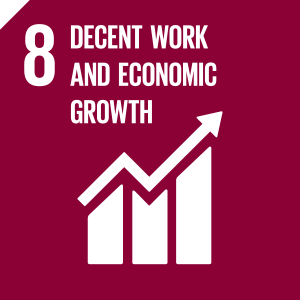
Promote sustained, inclusive and sustainable economic growth, full and productive employment and decent work for all |
8.5 Achieve full and productive employment and decent work for all women and men, including for young people and persons with disabilities, and equal pay for work of equal value.
8.6 Substantially reduce the proportion of youth not in employment, education or training. |
|
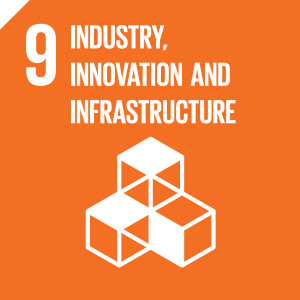
Build resilient infrastructure, promote inclusive and sustainable industrialisation and foster innovation |
9.1 Develop quality, reliable, sustainable and resilient infrastructure, including regional and transborder infrastructure, to support economic development and human well-being, with a focus on affordable and equitable access for all. |
|
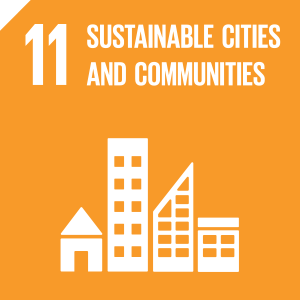
Make cities and human settlements inclusive, safe, resilient and sustainable |
11.2 Provide access to safe, affordable, accessible and sustainable transport systems for all, improving road safety, notably by expanding public transport, with special attention to the needs of those in vulnerable situations, women, children, persons with disabilities and older persons. |
|
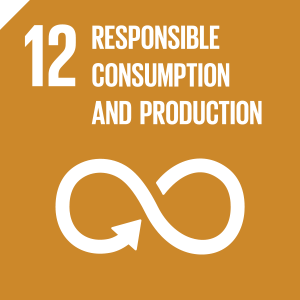
Ensure sustainable consumption and production patterns |
12.4 By 2020, achieve the environmentally sound management of chemicals and all wastes throughout their life cycle and significantly reduce their release to air, water and soil to minimize their adverse impacts.
12.5 By 2030, substantially reduce waste generation through prevention, reduction, recycling and reuse. |
|
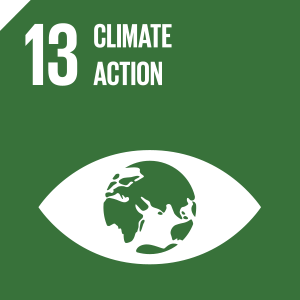
Take urgent action to combat climate change and its impacts |
13.1 Strengthen resilience and adaptive capacity to climate-related hazards and natural disasters.
13.2 Integrate climate change measures into policies, strategies and planning. 13.3 Improve education, awareness-raising and institutional capacity on climate change mitigation, adaptation, impact reduction and early warning. |
|
Principles of the UN Global Compact
| Principles of the Global Compact | Report section |
|---|---|
| Human rights principles | |
| Principle 1. Businesses should support and respect the protection of internationally proclaimed human rights. | Corporate Ethics |
| Principle 2. Business should not be complicit in human rights abuses. | |
| Labour Principles | |
| Principle 3. Businesses should support freedom of association and real recognition of the right to collective bargaining. | HR Policy |
| Principle 4. Businesses should advocate for the elimination of all forms of forced and compulsory labour. | |
| Principle 5. Businesses should advocate for the complete eradication of child labour. | |
| Principle 6. Businesses should advocate for the elimination of discrimination in employment. | |
| Environment principles | |
| Principle 7. Businesses should support a precautionary approach to environmental issues. | Environmental Protection |
| Principle 8. Businesses should take initiatives to increase environmental responsibility. | |
| Principle 9. Businesses should promote the development and dissemination of environmentally sound technologies. | |
| Anti-corruption principles | |
| Principle 10. Businesses should oppose all forms of corruption, including extortion and bribery. | Anti-Corruption |
Materiality definition
GRI 3-1
The Company strives to disclose information in the Annual Report that is current and material to stakeholders. KEGOC JSC conducts an annual materiality assessment based on surveys of both external and internal stakeholders. In 2024, a comprehensive list of topics was considered during the materiality identification process, including the Company’s governance specifics, economic performance, human rights compliance, and the Company’s impact on society and the environment, taking into account industry characteristics.
In line with the GRI materiality principle, a five-point scale survey assessment was conducted in August 2024 to determine the most relevant sustainable development topics. This involved both internal and external stakeholders who have a significant influence on the Company. The assessment was carried out in the form of a questionnaire. The 2024 materiality analysis was based on the “double materiality” approach. As part of the preparation of this Report, a stakeholder survey was conducted, resulting in the collection of 243 completed questionnaires: 120 from external stakeholders (consumers) and 123 from internal stakeholders (shareholders, Company employees).
Following the survey, the assessment results were reviewed and approved by the Coordinating Council on Sustainable Development and IMS (Minutes No. 2 dated 21 October 2024). In addition, an analysis of internal documents was conducted to identify stakeholder priorities and key trends in sustainable development.
Based on the collected data and the conducted analysis, a Materiality Matrix was developed, within which 7 priority topics were identified as having the highest relevance for the Company and its stakeholders.
Materiality matrix
GRI 3-2
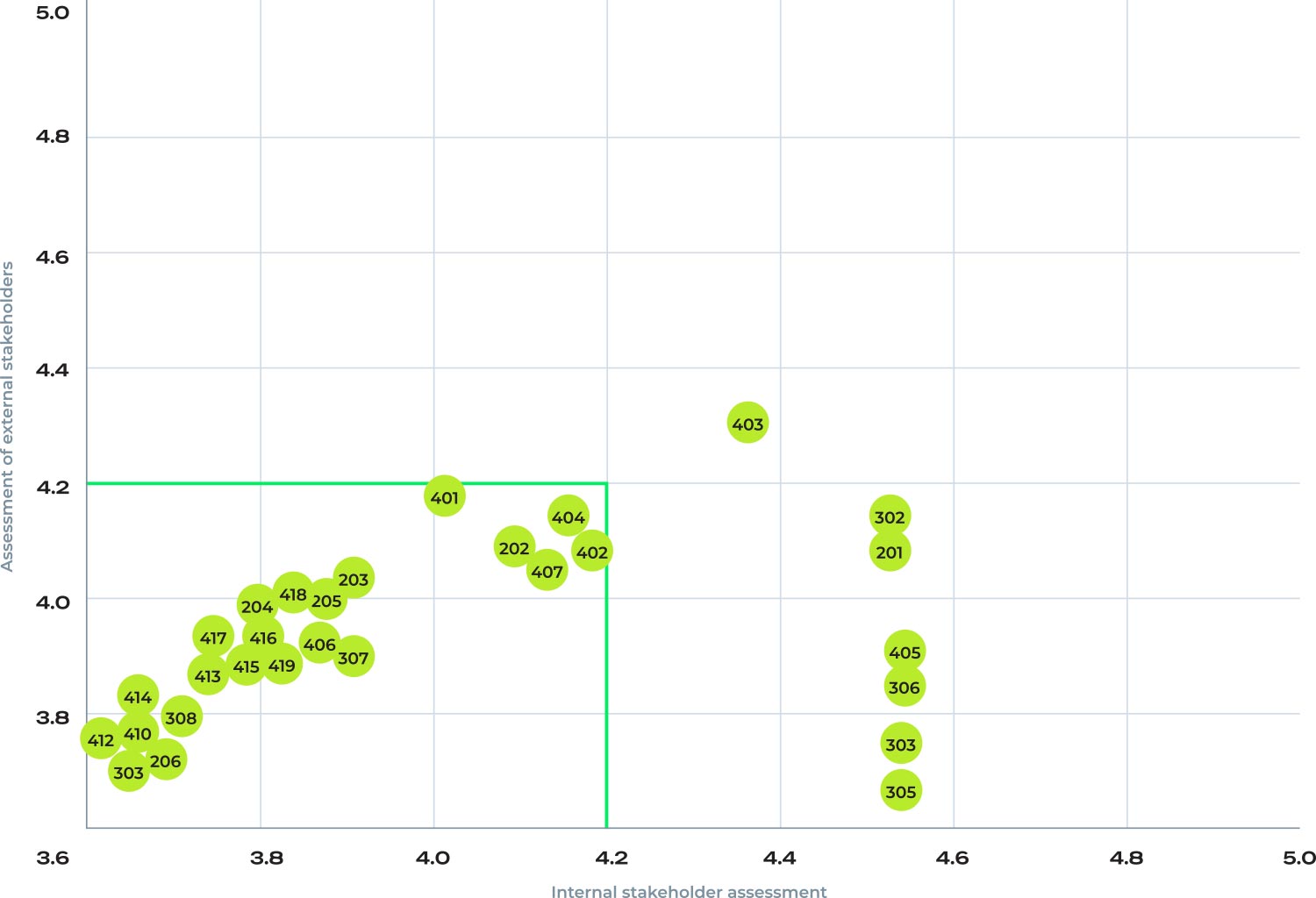
Material topics and most significant impacts
GRI 3-2, 3-3
| Material Topics | Impact | Key stakeholders |
|---|---|---|
| 201 Economic Performance | Positive impact is reflected in the sustainable growth of financial indicators, enabling the Company to invest in infrastructure modernization, innovation development, and improvements in energy efficiency and reliability. This also contributes to job creation and increased tax contributions. Negative impact may arise from financial instability, growing debt, or a decline in investment appeal, adversely affecting sector development and stakeholder trust. | Shareholders and investors, government authorities, suppliers and contractors, employees, local communities |
| 302 Energy | Positive impact includes reduced greenhouse gas emissions due to the integration of RES. Negative impact may result from delays in phasing out fossil fuels if RES deployment is insufficient. | Local communities, service consumers, suppliers |
| 303 Water and Effluents | KEGOC JSC’s focus on minimizing the environmental impact of its assets may help build a positive relationship with the local population. Conversely, the lack of clear commitments to reduce environmental harm may cause stakeholder dissatisfaction and hinder investment project implementation. | Local communities, creditors, suppliers, business partners |
| 305 Emissions | ||
| 306 Waste | ||
| 403 Occupational Health and Safety | Effective control and support of the occupational health and safety system positively affect the psychological and physical well-being of employees. Neglect of these areas results in higher injury rates and dissatisfaction. | Employees, suppliers, business partners |
| 405 Diversity and Equal Opportunity | Positive impact includes the creation of an inclusive and equitable working environment, fostering productivity and an improved corporate climate. Negative impact may stem from insufficient representation of vulnerable groups, potentially leading to social tension and legal consequences. | Employees, local communities, investors, creditors |
The results of the 2024 stakeholder survey analysis were compared with those of the 2023 assessment. In addition to the topics identified as material in the 2023 analysis, the topic of “Water and Effluents” was selected by stakeholders as material. Nevertheless, most GRI topics are disclosed in this Report, including to comply with the Information Disclosure Rules for security issuers of the KASE and AIX stock exchanges, the recommendations of the TCFD, and the requirements of the SASB standard.